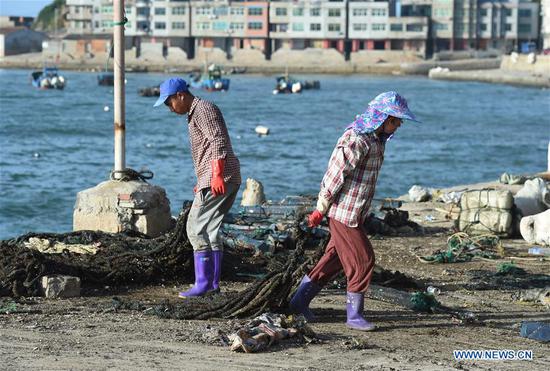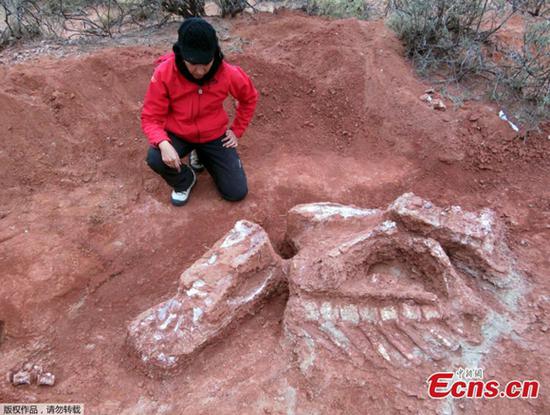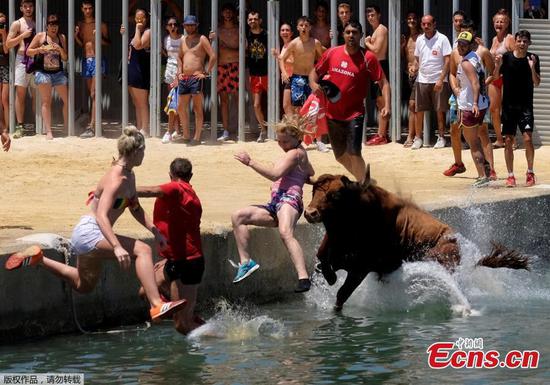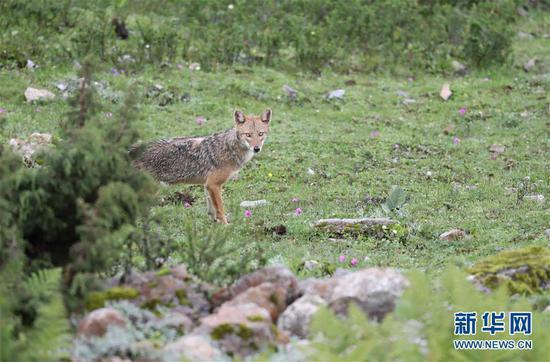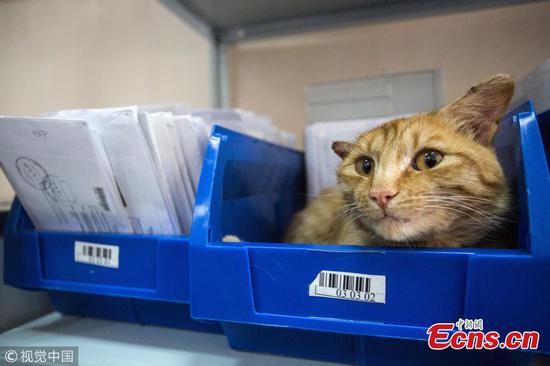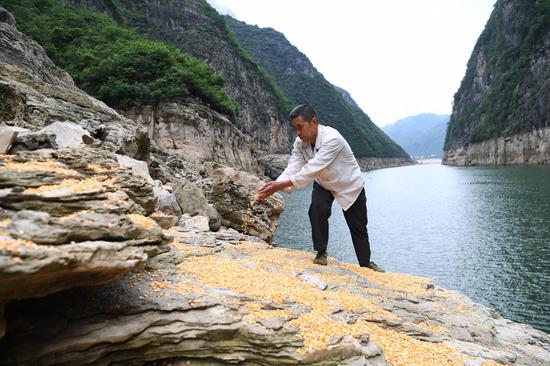
Dai Guangqun scatters corn on a rock formation along the Daning river, a tributary of the Yangtze River, in Chongqing's Wushan county. (Photo/Xinhua)
Every Tuesday morning, a small boat docks at four sites along the Daning River, a tributary of the Yangtze River, and Dai Guangqun begins to scatter 500 kilograms of corn.
He whistles, one long blast and two short, to signal to his furry friends that their weekly banquet is ready. The wild macaques soon arrive in their thousands.
The State-protected monkeys have long lived on the banks of the upper Yangtze, as described in a poem by the poet Li Bai (701-762): "With monkeys at riverbanks chattering ceaselessly and loud, my boat has left ranges of mountains far behind."
However, increased human activity and the unrestrained felling of trees have made the primates a rare sight-until recently.
In the mid-1990s, there were fewer than 100 wild macaques at the Longmen, Bawu and Dicui gorges in Chongqing's Wushan county, collectively known as the "Little Three Gorges". Today, the population has surpassed 3,000, according to Tao Jubin at the county tourism bureau.
Dai provides corn and other food for the monkeys as well as collecting garbage from surrounding scenic spots. Like so many people who grew up along the Yangtze, he once cut down trees to plant crops, burning the wood for heating and cooking.
However, as the public gradually became aware of the environmental damage, the Chongqing government made moves to protect the wildlife and expand vegetation.
Many villagers in the mountains were relocated to reduce their impact on wild macaque habitats, river ports were closed, and the public was banned from felling trees.
The hard work has paid off, with the monkey population now flourishing. However, this has brought a new set of problems. As there is not enough wild fruit in the mountains, the monkeys often scamper downhill and steal corn from surrounding fields.
To help primates and humans get along, the Wushan government spends about 1 million yuan ($150,000) a year on food for the macaques, leading to a distinct decline in the theft of villagers' crops.











